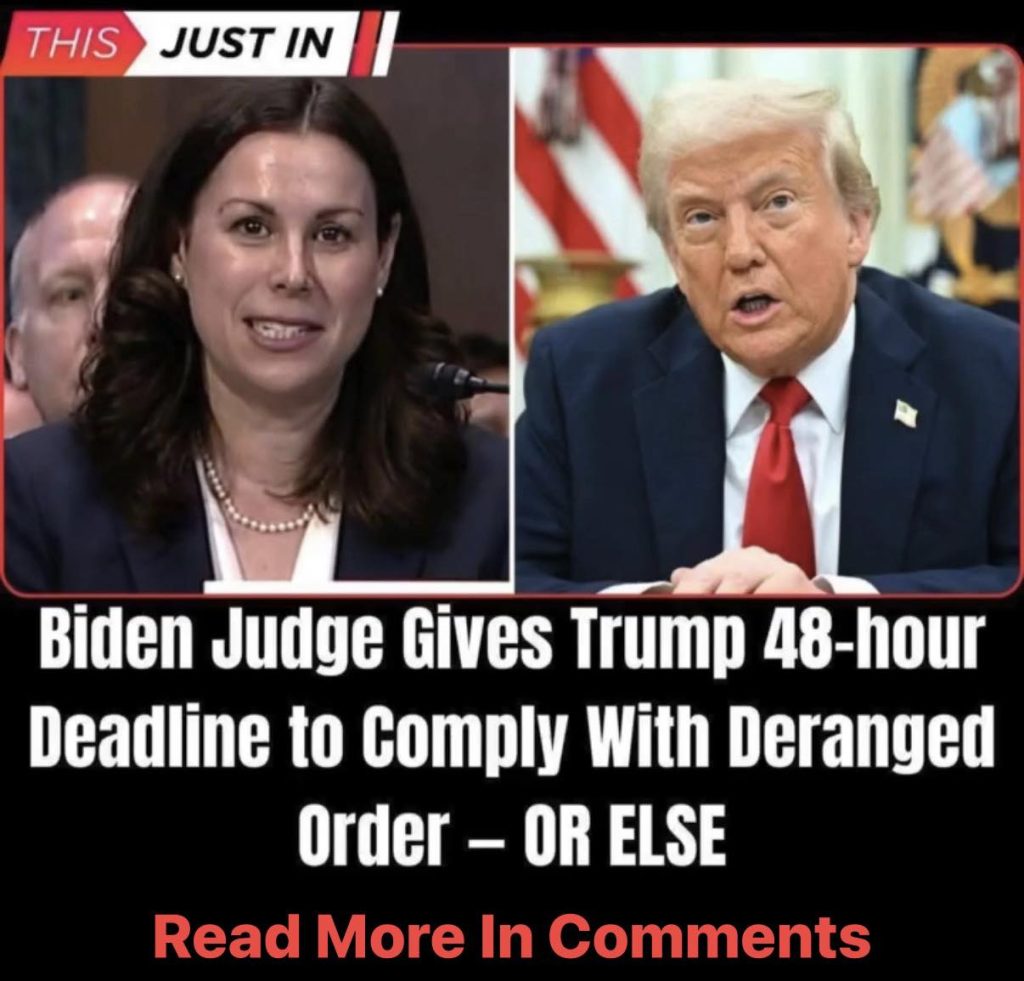A federal judge has ordered the U.S. government to provide a detailed explanation within 48 hours for its decision to deploy National Guard troops to Chicago — a move that has ignited a high-stakes legal and political battle over presidential authority, state sovereignty, and the limits of military involvement in domestic law enforcement.
The dispute centers on the Biden administration’s recent decision to federalize and deploy approximately 200 National Guard troops from Texas to Chicago. The troops, according to federal officials, are being sent to assist in ongoing law enforcement operations aimed at combating violent crime and illegal trafficking. But Illinois state leaders argue the action was taken without their consent, amounting to an overreach of executive power.
A Rapidly Escalating Legal Battle
The legal confrontation began over the weekend, when Illinois Attorney General Kwame Raoul, joined by Governor J.B. Pritzker and Chicago Mayor Brandon Johnson, filed an emergency lawsuit seeking to block the deployment. The suit claims the federal action violates the Constitution’s protections of state sovereignty and exceeds the president’s legal authority under both the Insurrection Act and the National Emergencies Act.
“The president cannot simply invoke emergency powers to send troops into a state that has neither requested nor authorized them,” the filing states. “This deployment represents a dangerous precedent that undermines state control over public safety.”
In response, the Justice Department defended the move as lawful and necessary, citing what it called “extraordinary circumstances” in Chicago, including a surge in gang-related violence and cross-border weapons trafficking.
The Federal Court’s 48-Hour Deadline
The case landed before U.S. District Judge April Perry, a 2022 appointee who is now at the center of the intensifying standoff between Washington and Springfield. Late Monday evening, Judge Perry issued an order giving government lawyers until midnight Wednesday to submit a comprehensive written justification for the deployment.
A hearing has been scheduled for Thursday afternoon, where both sides will present arguments on whether the federal government’s actions are constitutionally permissible — and whether the deployment should continue while the lawsuit proceeds.
For now, Judge Perry declined to issue an immediate restraining order, allowing the first wave of troops to move forward with the operation. Federal officials confirmed that approximately 200 National Guard members are en route to Chicago, where they are expected to begin joint operations with federal law enforcement agencies by Wednesday morning.
State-Federal Tensions Rise
The dispute underscores long-simmering tensions between state and federal governments over the use of military forces in domestic matters. While the federal government has the authority to deploy troops under specific emergency conditions, those powers are rarely invoked without coordination or consent from state leaders.
Governor Pritzker sharply criticized the move in a statement late Monday, calling it “an egregious violation of state authority.” He added, “Illinois is not a war zone. The deployment of out-of-state National Guard troops without our request or approval is both unconstitutional and unacceptable.”
Chicago Mayor Brandon Johnson echoed that sentiment, warning that the presence of federalized troops could escalate tensions in communities already struggling with strained relations with law enforcement. “We need resources for prevention, not occupation,” Johnson said. “This decision undermines local control and public trust.”
The Federal Government’s Defense
The White House and the Department of Justice have defended the deployment as a targeted and temporary measure. Federal officials insist the troops are not being used for general policing, but rather to support specialized federal law enforcement operations against organized crime networks.
“These troops will not patrol city streets,” a senior DHS official said on condition of anonymity. “They are being deployed in coordination with federal task forces to address violent trafficking operations that have national security implications.”
Press Secretary Karoline Leavitt also sought to downplay the controversy, saying the administration’s intent is to “protect communities, not politicize public safety.”
A Constitutional Flashpoint
Legal experts say the case could become a defining test of federal emergency powers and the separation of state and federal authority. The Constitution and the Insurrection Act allow a president to deploy military forces domestically in limited situations — typically to suppress insurrection or enforce federal law — but only under specific legal thresholds.
“This is a classic federalism showdown,” said constitutional law scholar David Strauss. “The question is whether the president can invoke those powers preemptively in the name of law enforcement, without a formal request or declaration of emergency from the state.”
The outcome could have sweeping implications not only for Illinois, but for the balance of power between Washington and the states in future crises.
What Comes Next
As the 48-hour deadline looms, the administration faces mounting pressure to justify the legal and constitutional basis for its decision. The federal government’s written response is expected to outline the statutory authority invoked for the deployment, the operational purpose of the mission, and the safeguards in place to prevent overreach.
Thursday’s hearing is expected to draw national attention, as it could determine whether the troops remain in Chicago or are ordered to withdraw.
For now, the first contingent of National Guard members is proceeding as planned — even as the courts, Congress, and the public brace for what could become one of the most consequential constitutional disputes over military power and state sovereignty in decades.


